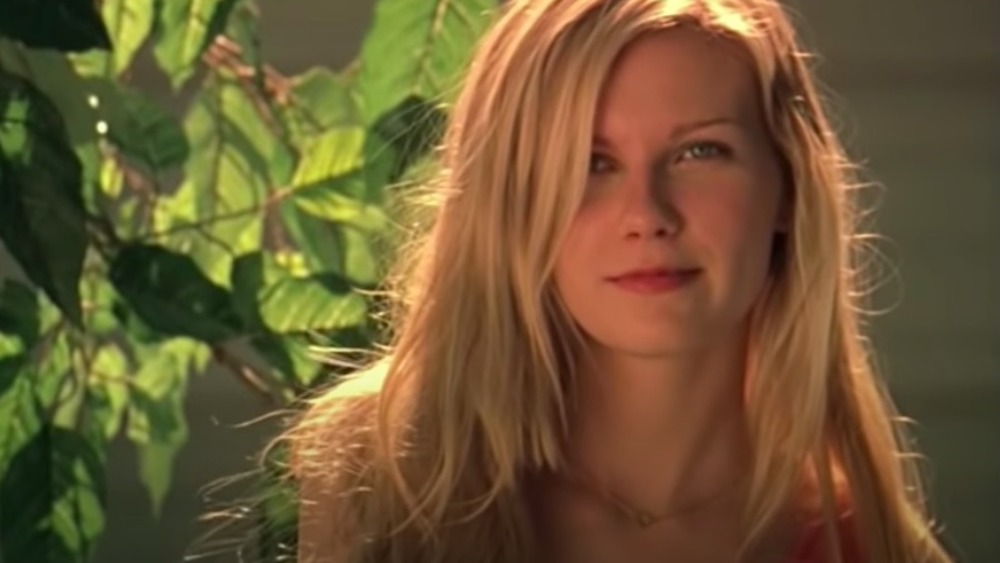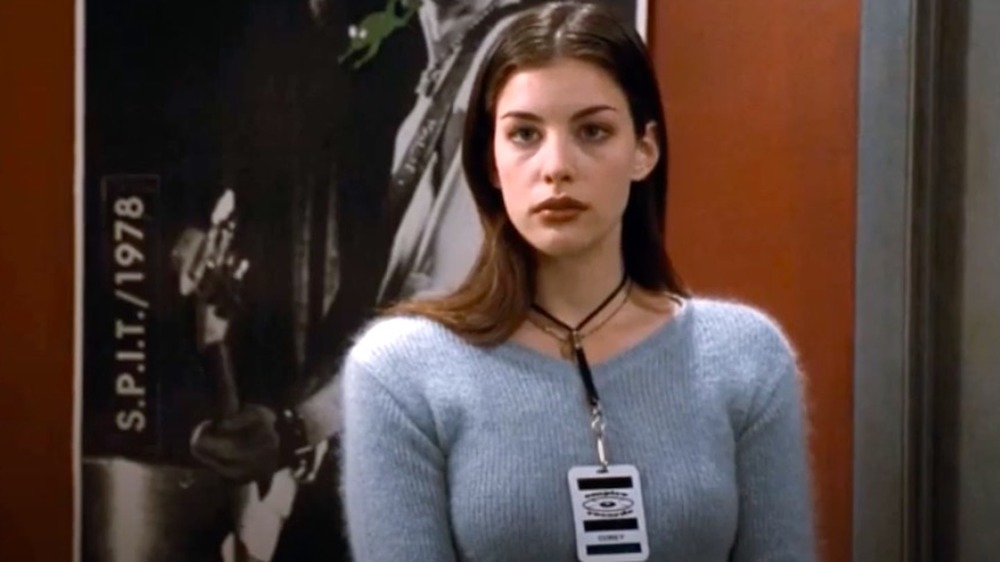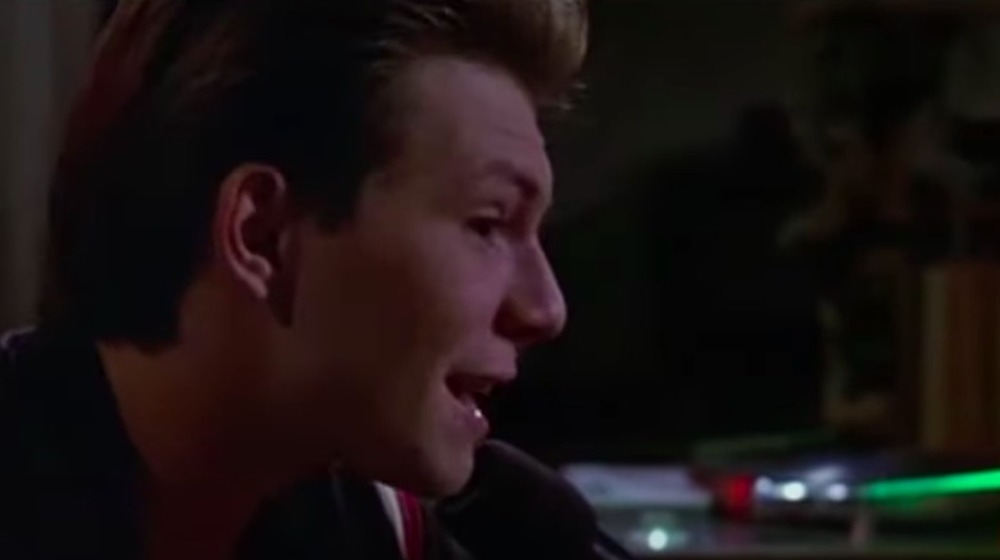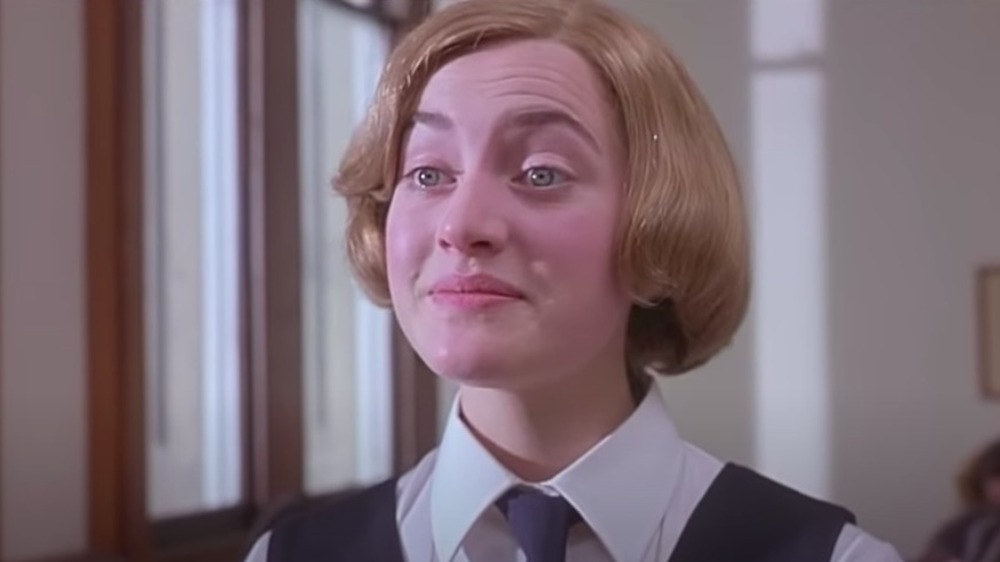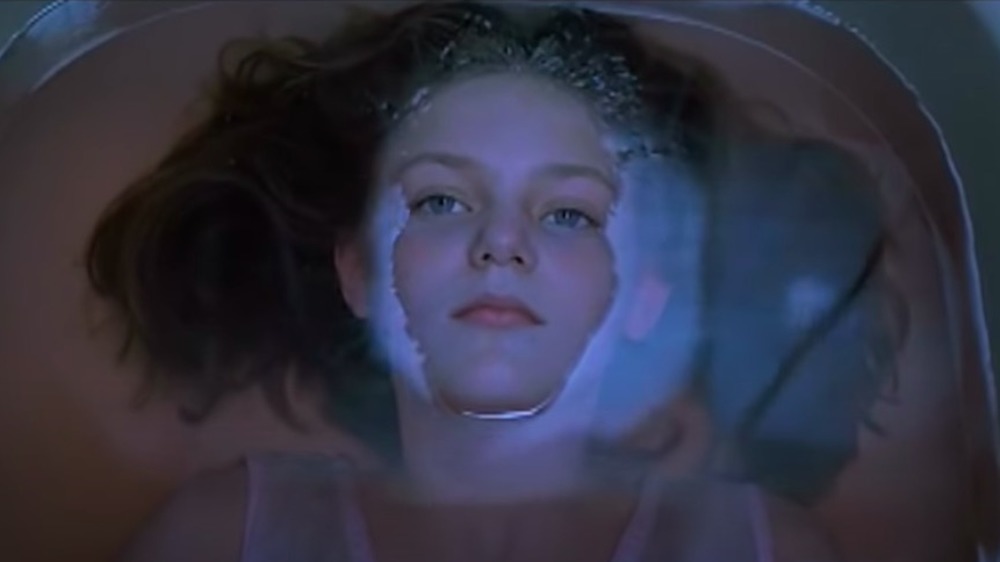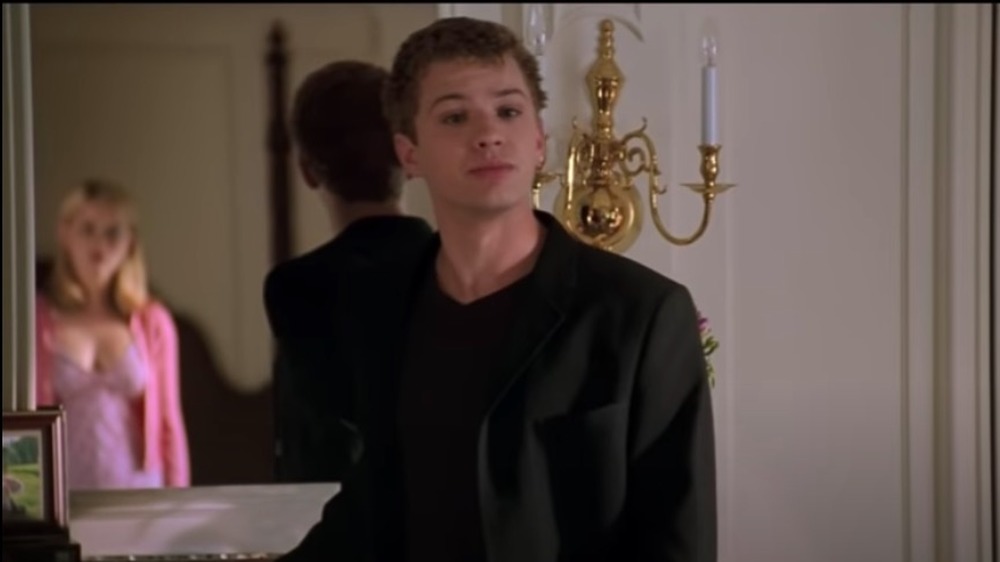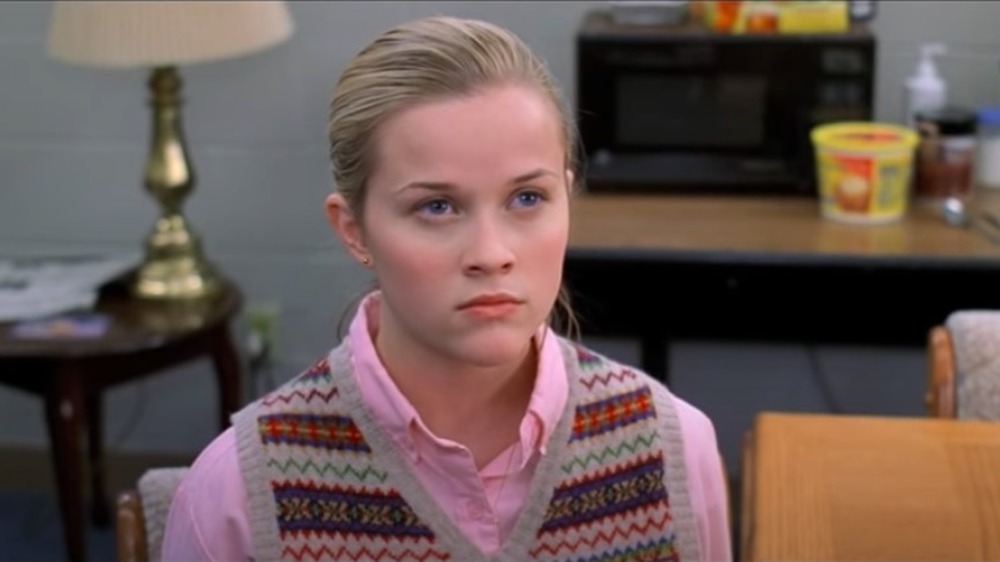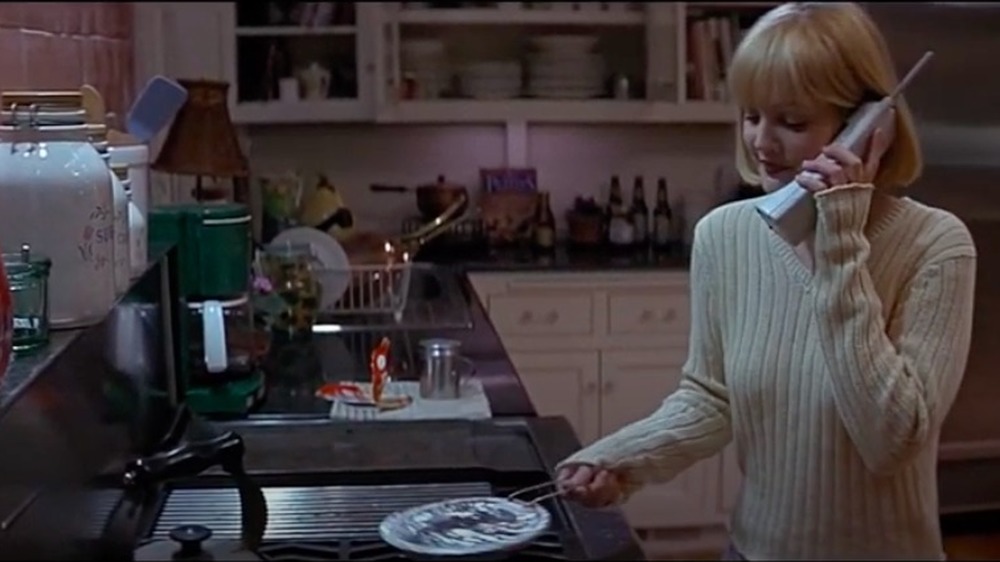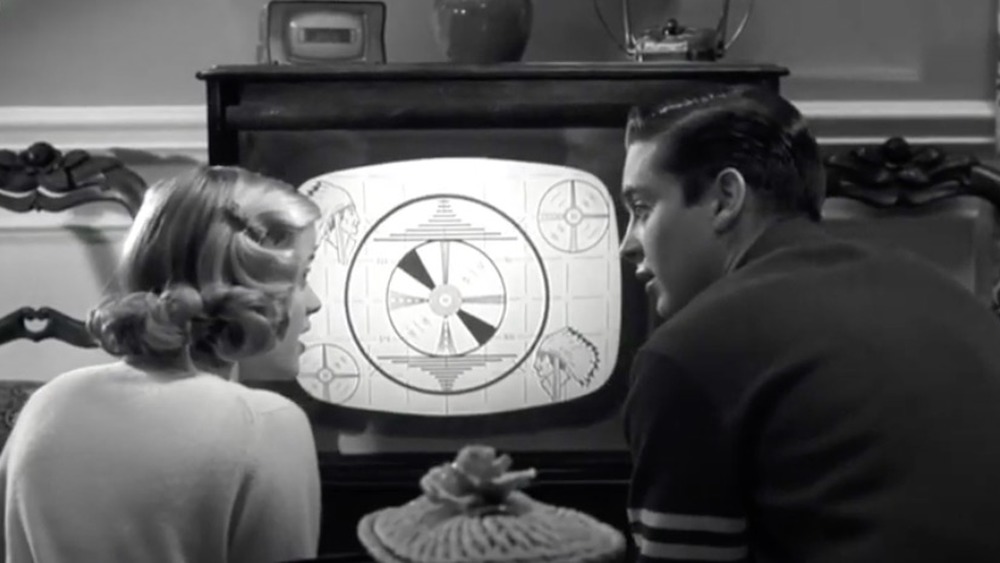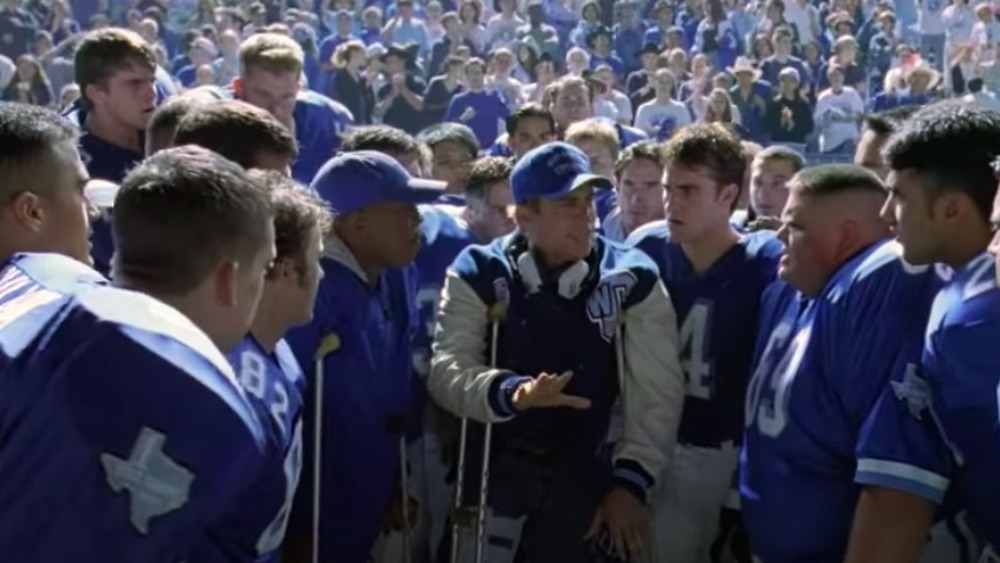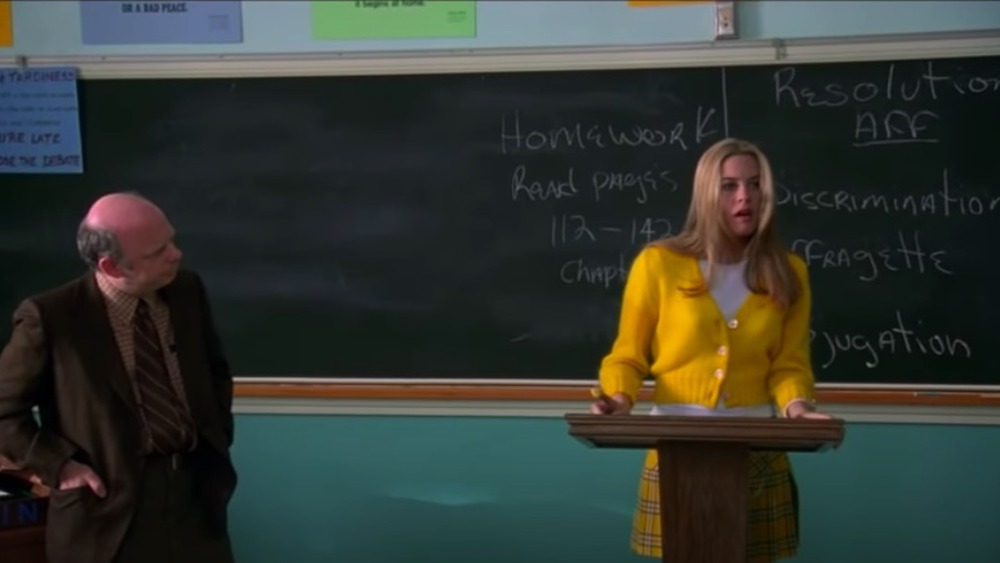The Most Popular 90s Teen Movies According To Rotten Tomatoes
As a time that many are still nostalgic for, the 1990s gave moviegoers some iconic teen films, with a number of them now considered classics of the genre. Several of these are still talked about and frequently watched today; those who haven't seen the hilarious Clueless, inspired by Jane Austen's Emma, or Scream, the clever horror movie that launched a franchise, are few and far between.
A piece in the Guardian about the lasting effects of 90s' cinema wrote that "teen movies benefited from the era's appetite for smartness and enjoyed a boom period of the kind not seen since Judd Nelson punched the air in The Breakfast Club." A "boom period" may be putting it lightly, seeing as the list of teen movies from this era can seem never ending. Maybe your favorite is 10 Things I Hate About You, or American Pie – both of which are still often referenced within the pop culture world. However, neither of these movies could be considered the most popular of the 90s teen movies — at least going off Rotten Tomatoes scores. After scouring through the long list of eligible movies and consulting the popular film ratings site, here is a rundown of the most popular 90s teen movies according to Rotten Tomatoes.
Empire Records (84%)
Empire Records (1995), directed by Allan Moyle, follows the teen music-savvy employees of an independent Delaware record store. Taking place over the course of just one day, the teens must try to prevent the store from being sold to a major chain. The film marks early career roles for several successful actors, including Liv Tyler, Ethan Embry, Robin Tunney and — most notably — Renee Zellweger.
Empire Records is a perfect example of how skewed critic responses can be in relation to audience reaction. While the audience score on Rotten Tomatoes sits at a high 84%, the critic rating is significantly lower at 29%. While critics have deemed it silly or predictable, audiences have deemed it "fun from start to finish."
Now considered a cult classic, the movie has only gotten more popular over time. The Guardian published a piece this year for the film's 25th anniversary that stated, "It's now a respected cultural touchstone." Meanwhile, Buzzfeed wrote a similar piece about its belated success, arguing that much of its popularity arose from it being initially dismissed: "Empire Records flourished when it was ignored. Kids like me saw it in the video store, watched it on cable, found a random VHS copy, and thought the charm was their secret." Considering Empire Records is still being watched, talked about and written about, it seems safe to say that its popularity is safely cemented in the pop culture canon.
Pump Up the Volume (84%)
Another film by director Allan Moyle, 1990's Pump Up the Volume proves Moyle knew what he was doing when it came to making popular teen films. Pump Up the Volume introduces Mark Hunter (Christian Slater), an insightful teen who hosts a radio show from his parents' basement about the injustices of society. Mark keeps his identity a secret — broadcasting as "Hard Harry" — while one of his fellow students, Nora (Samantha Mathis), seeks to find out his identity and his principal, Loretta Creswood (Annie Ross), tries to shut down the show.
Unlike Moyle's Empire Records, this teen flick actually has high critic ratings, at 81% on Rotten Tomatoes. Not that this matters because the audience ratings speak for the merit of the movie in terms of viewer enjoyment. One recent audience review calls it "a sharp, introspective social commentary" that has stood the test of time.
Slater himself, in an interview with Variety, said that Pump Up the Volume is his favorite of his films and that it was ahead of its time, getting into "some of the darker, more gruesome details of what it's actually like to be a teenager in high school." A high school film having a deeper sense of purpose and nuance seems to be a significant reason why this film is worth watching and why it remains one of the most popular of the many teen films of the 90s.
Heavenly Creatures (83%)
Based on a true murder case from 1954, Peter Jackson's Heavenly Creatures (1994) tells the story of a young friendship that becomes sinister. When a wealthy teenager (Kate Winslet, in her film debut) moves to Christchurch, New Zealand, she befriends the quiet and shy Pauline (Melanie Lynskey). Their friendship begins to heighten in intensity and obsessiveness, eventually resulting in the murder of Pauline's mother.
Films based on fact are often intriguing to moviegoers and viewers agree that Heavenly Creatures hits its mark in the realm of historical dramas. With a strong, suspenseful plot based on a compelling true story, it's no wonder this film has captivated so many viewers over the years, according to 40,000-plus audience ratings on Rotten Tomatoes. On the site, viewers have written that this film is "beautiful yet disturbing" and one that "will stay with you long after the credits roll."
Whether you're a crime junkie or merely a drama film fiend, viewers agree that the intriguing and well-constructed Heavenly Creatures is well worth your time.
The Virgin Suicides (81%)
Crime proves compelling to moviegoers yet again with The Virgin Suicides, the 1999 feature directorial debut of Sofia Coppola. Based on the 1993 novel of the same name by Jeffrey Eugenides, the story centers on the five Lisbon sisters, who are the focus of observation and obsession by the neighborhood boys. As the title suggests, the film delves into the difficult topic of teenage suicide, as each of the Lisbon sisters take their own lives over the course of the film to the horror and bewilderment of the neighborhood boys, the rest of the community and the girls' overprotective parents.
Viewers are drawn to the film's depiction of teen life that is different from its other contemporaries, presenting teen angst as feeling catastrophic — as it does as a teen. One audience member wrote that "its nostalgic reflections on teen life and teen romance produce a work of art that is sad, yet nonetheless beautiful." The Atlantic, in a retrospective piece on the film, agrees with viewer consensus, calling it "a poetic meditation on the angst of teenagehood that's at once deadly and dreamy."
Treating teenagehood with delicacy and keen awareness, The Virgin Suicides has stood the test of time and remains a poignant watch for both teens and adults alike.
Cruel Intentions (81%)
Cruel Intentions, directed by Roger Kumble, is another on this list in which the stars went on to have fruitful careers: Ryan Phillippe, Selma Blair, Sarah Michelle Gellar and especially Reese Witherspoon. Witherspoon plays Annette, a teen who writes and publishes a magazine article detailing her intention to save herself for marriage. When step-siblings Kathryn (Gellar) and Sebastian (Phillippe) hear about the article, they make a wager between the two of them, in which Sebastian must attempt to get Annette to go to bed with him.
Many viewers have noted the talent of the ensemble cast in driving the success of the film, as well as calling the plot a "clever and cunning drama." In a deep reading of the film, Buzzfeed explored its lasting appeal, 20-plus years on, citing its plot as one that is more complex than it seems on the surface level: "Cruel Intentions also offers us those two competing readings: noble and tragic sacrifice, or deserved comeuppance for selfish sociopathy."
The Buzzfeed piece also described the film as being about "sex, power and chaos," which are three words that arise frequently within the Rotten Tomatoes audience reviews. In both cases, they're meant as a positive for the 1999 flick.
Election (79%)
Alexander Payne's Election (1999) follows high school overachiever Tracy Flick (Reese Witherspoon) as she runs for school president in what she believes will be an easy win (since she is running unopposed). But a popular teacher at the school, Jim McAllister (Matthew Broderick), is resentful toward Tracy and, as the overseer of student government, doesn't want her to win the election. So Jim decides to persuade another student, the not-as-bright but popular Paul (Chris Klein), to run against Tracy, infuriating her and making the race suddenly more complicated.
Election is so popular that it is, according to Payne, Barack Obama's favorite political film. In an interview with Vanity Fair, Payne stated, "Both times [we met], when I introduced myself, he said, 'Oh, Election is my favorite political movie.'" The majority of the 60,000-plus audience reviewers on Rotten Tomatoes agree with the former president, giving it its high rating of 79%. One viewer commended its intricacy, calling the film an "amusing satirical film that may take us more than one viewing to grasp its subtle, dark humor and the sharp irony."
The Guardian published a piece about its lasting popularity, addressing the ways it was ahead of its time and noting the bleak undertones of the film. It addresses how the film utilizes "the cynicism of the 90s and [estranges] it from the hopeful revisionism of modern discourse." Whether the viewer wants a dark, deeper reading of the film or just wants to enjoy entertaining political chaos, Election won't disappoint.
Scream (79%)
Scream, directed by pioneering horror filmmaker Wes Craven, takes place in the fictional town of Woodsboro, California where a serial killer in the Halloween costume of Ghostface is terrorizing the community, specifically targeting teen Sidney Prescott (Neve Campbell). Part slasher film, part black comedy, 1996's Scream presents a world in which its characters are actively aware of horror movie tropes and cliches, resulting in a satire of the genre.
Viewers are drawn to the self-awareness of the film, and are amused by the satirical elements, while still finding it scary to watch — it has multiple levels and works on each of them. One audience reviewer wrote, "Scream takes established expectations and turns [them] around, using it strongly to its advantage, combining witty humor and tension." Newsday went as far as to call Scream the defining film of the 90s, referring to it as "a horror movie about horror movies [that] was the ultimate meta-movie for a meta-obsessed decade."
Scream has more than earned its popularity with its seamless blend of genres and accessibility to every kind of viewer — both the individual tired of the horror genre and the one still fanatic over it — and this remains true today, over 20 years on.
Pleasantville (79%)
Gary Ross' 1998 Pleasantville follows two teen siblings who get trapped in a black and white 1950s television show after a mysterious repairman provides them with a portal (via the TV's remote control) into the show's world. Starring a young Tobey Maguire and Reese Witherspoon (clearly thriving in the late 90s, according to this list) as the siblings, David and Jennifer, Pleasantville also features many other famous faces in supporting roles, such as Jeff Daniels, Joan Allen, Paul Walker, William H. Macy and more.
For many, the allure of Pleasantville lies in its likeable characters, who change and grow dynamically over the course of the plot. Relatedly, the use of color and "a unique visual style," as one audience reviewer wrote, is one of the main draws of the film. As David and Jennifer, with their more modern ways, begin to alter the stiff 1950s world, the use of color amidst the black and white is representative of what or who has progressed into forward-thinking.
Anyone who has experienced nostalgia — or the burnout of too much of it — will be able to identify with and enjoy the world of Pleasantville.
Varsity Blues (76%)
Directed by Brian Robbins, Varsity Blues takes place in the fictional town of West Canaan, Texas, in which the entire community ardently follows high school football. When the star quarterback, Lance Harbor (Paul Walker), is injured, benchwarmer Jonathan "Mox" Moxen (James Van Der Beek) must step into the role and lead the team — to the reluctance of the intense, winning-obsessed coach, Bud Kilmer (Jon Voight).
Despite a fairly low critics' score (at 43%), the audience reviewers of Rotten Tomatoes still adore this 1999 film. Many address, in their reviews, the flaws of this film — that it's predictable, even silly — but still declare their love toward it regardless. A bulk of the positive audience reviews bring up the terms "feel good" and "entertaining" or "fun." They also enjoy the casting, including Van Der Beek in the lead (already well known amongst teens at the time of the film's release, due to his Dawson's Creek role) and Voight as the tough coach.
With small town football dramas about to take off even more a few years later with the release of Friday Night Lights (both the 2004 film and 2006 TV series), Varsity Blues set the precedent for the subgenre with its feel-good yet sensational tone.
Clueless (76%)
Of all the movies on this list, Clueless might be the most referenced — from "As if!" to "You're a virgin who can't drive," the film is as full of memorable lines as it is iconic outfits. Amy Heckerling's 1995 comedy, loosely based on Jane Austen's Emma, introduces Cher Horowitz (Alicia Silverstone), a wealthy teenager living in Beverly Hills with her widowed father. Cher's hobbies include playing matchmaker for two teachers with the help of her best friend Dionne (Stacey Dash) and giving a makeover to the awkward new girl, Tai (Brittany Murphy, wonderful in an early career role). The film also features a young Paul Rudd, as Cher's former stepbrother turned love interest, who she initially butts heads with over her decisions.
One audience reviewer called the film's characters "lovable and iconic," while another called Cher "the queen of the 90s." The consensus is that this film is both clever and fun, satirical yet sincere. In a 20th anniversary feature, Rolling Stone declared it "the ultimate teen comedy" and credited its appeal to the complexity and nuances of the female characters, stating that it "was also deeply concerned with timeless girl-world concerns: virginity, relationships, friendship, trying to wrestle with a world that thinks you're no more than an idiot." Cher, while surface-level ditzy, has much more to her, which resonates with viewers and contributes to her iconic status.
It's also easily one of the most fun films from this era, and maybe ever. "As if!" never gets old.
